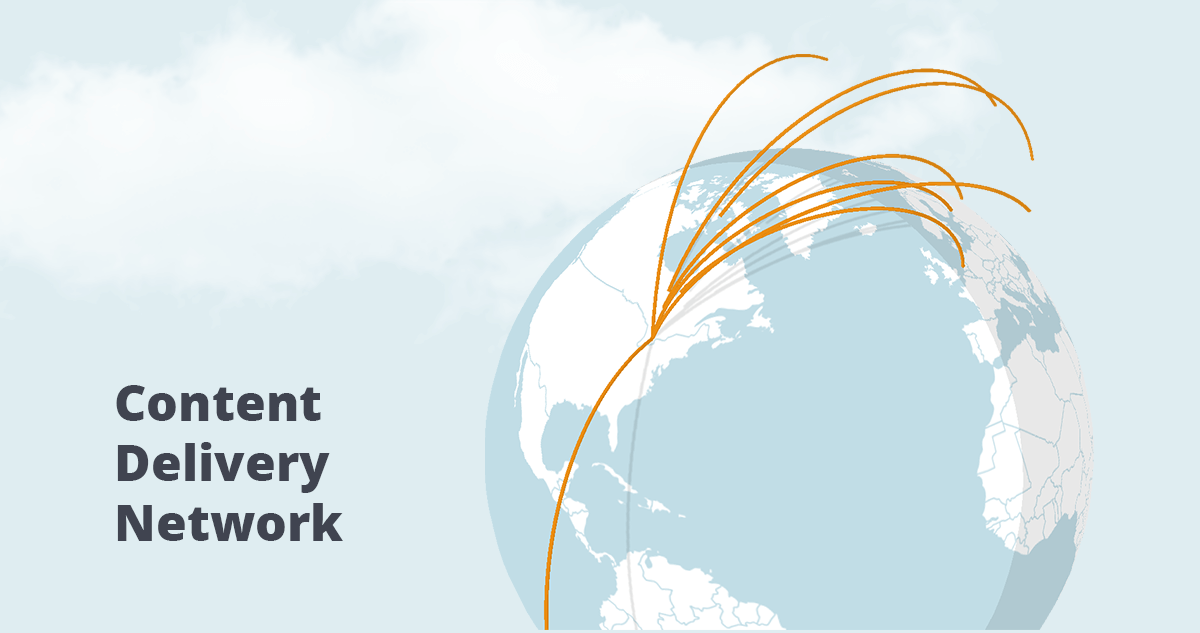What is a CDN and why should you use it to improve your website?

Have you ever left a website because it seemed hours to load? We can all agree that waiting for a website to load is something unacceptable in this day and age. That’s why more and more companies are using a CDN, Content Delivery Network, to speed up their website. In this blog, we will explain to you what a CDN is, how it works, and what benefits it provides.
What is a CDN?
It’s a worldwide network of servers that together ensure the rapid distribution of Internet content to users. It ensures that content is stored closer to users so it will load faster because it travels less distance. This is made possible by the global network of servers that makes the CDN.
These servers are strategically located data centers around the globe directly connected to the backbone of the internet and they will store the content of your website. It ensures that copies of your content are available worldwide, so when a user visits your website the content is retrieved from the nearest and fastest server. It mainly offloads your server and improves the performance of your website by delivering the content as quickly, reliably, cheaply, and as securely as possible to the user.
How does it work?
When you are using a CDN provider, your content can be distributed through their global network of servers. The network consists of a large number of caching servers. These are dedicated network servers or services that act as a server that stores web pages or other Internet content locally.
A collection of caching servers in a single datacenter is usually called a Point of Presence (PoP). These PoPs are placed in different strategic areas all over the world. A CDN ingests static content from your website and caches it within these PoPs. Caching is the process of storing data locally for later use, this may be static content that never changes like HTML pages, javascript files, stylesheets, images, and videos.
A CDN enabled website will have its users retrieving data fully or partially from the CDN. When a request comes in, the user will be routed to the fastest PoP. The PoP can immediately send back the cached content to the user, without going back to the origin server of the website. If the content is unavailable or outdated (stale), the CDN cache server will retrieve the content from the origin server and store this for future requests in the PoPs again.
For example, when a visitor somewhere in Europe visits a website located in the United States the data has to travel a very long distance. Since TCP + http(s) connections need a lot of round trips before the content can be retrieved, the delay adds up rapidly. When the website is using a CDN network, the data of the website will be loaded from a PoP in the home or neighbouring country, in this case somewhere in Europe. This drastically improves performance for the user and the website loads much faster!
Benefits of a CDN
For companies that distribute content to users around the world, it is useful to use one. But a CDN offers much more than enabling global reach and delivering your content as fast as possible. It offers many benefits and some are more important than others depending on the content, its audience and needs of the website utilising a CDN. We discuss four of the most important benefits that apply to its users.
Better performance
A fast-loading website is a well-performing website. It provides a better user experience and this will lead to higher conversion rates. Long loading times can cause the visitor to leave the website before it is even loaded. Or even worse, give the visitor a bad (first) impression of your brand. So a faster website is important to boost conversions, page views and customer satisfaction. One second may sound like nothing, but it can already make a huge difference. A CDN can greatly improve the performance of your website. The website speed is significantly increased because content is served from the nearest and fastest PoP to the visitor of your website.
Availability
Sometimes a website gets swamped during peak times – we’re talking thousands of requests per second that even the most powerful servers are put to the test. Websites can be disrupted by traffic overload, because all the traffic must be absorbed by the hoster of the website. A CDNs core business is to handle large amounts of traffic and have availability policies in place to ensure a high uptime with ways to failover and stay online.
Costs less
Application costs for website owners can be reduced with a CDN. Instead of retrieving the same data from the origin server for each request, cached content will be served whenever this is available. A CDN is able to reduce the amount of data through caching and other optimizations it runs, like compressing the image sizes.
Offers security
With the growing activities and valuable data on the internet, the attacks on the internet will also grow. An attack can cost your company a lot, DDoS and web-based attacks are the most expensive attacks. A CDN helps keep your website secure by enhancing its security. CDNs can weaken a wide range of attacks without compromising delivery and availability.
Features
A lot of CDN providers offer extra features within the service. The list of features will be unique to each provider. Tinify CDN for example can automatically optimize your static content to further improve the loading time of your website. You get two services in one: in addition to fast content delivery, your website’s images will be analyzed and compressed for better speed. If you would like to know more about Tinify CDN and its features, please click here.
Why using a CDN?
To have a fast-loading website anywhere around the globe and on the most difficult places to reach, joining a CDN network can be the solution. The worldwide network of caching servers that make up a CDN ensures that the content of your website is stored close to your user. This ensures that a user of the CDN can deliver fast, high quality web experiences to all his visitors which has a positive influence on the conversions, page views and customer satisfaction. It’s not the only benefit a CDN offers, it also provides security against DDoS and web-based attacks, saves you costs and handles a lot more traffic. Nowadays, you can hardly do without!
